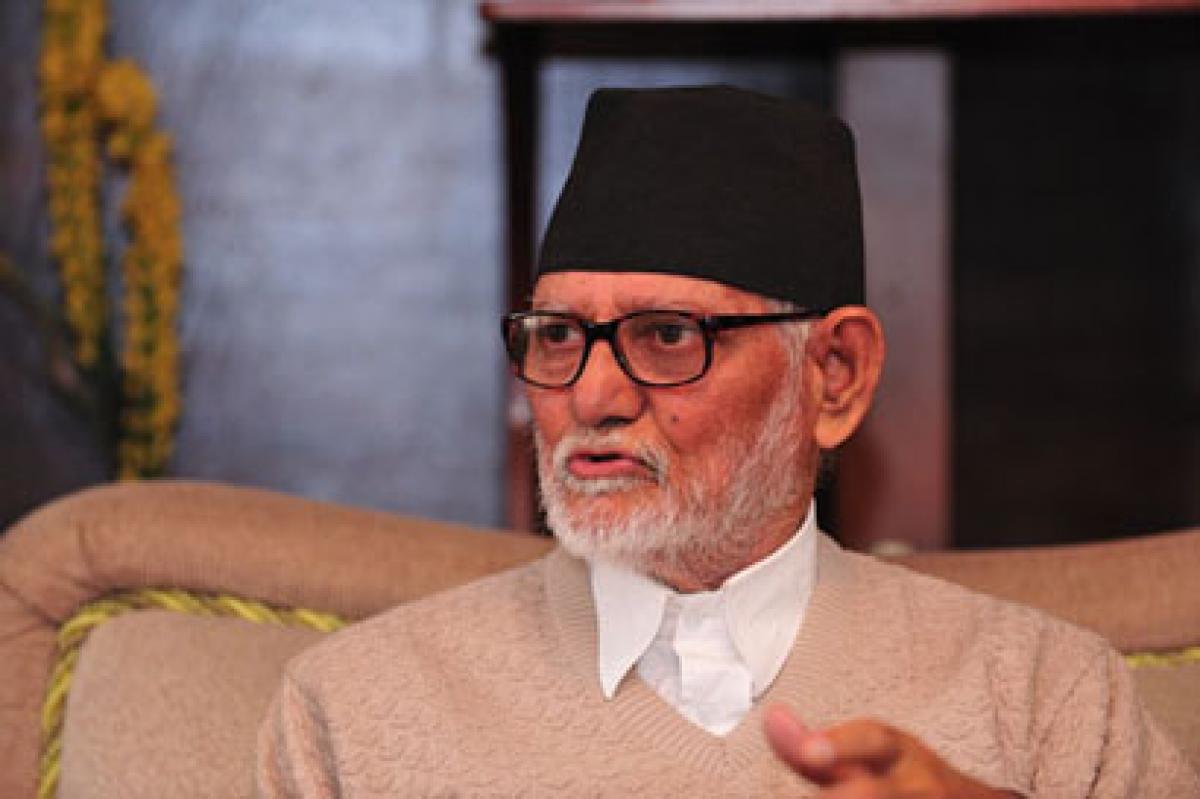Live
- Hyundai Motor India Limited Announces 2024 Edition of ‘Hyundai Always Around’ Campaign
- World Quality Day: Hindustan Zinc Reaffirms Commitment to Superior Product Quality & Innovation
- Samsung TV Plus Announces the Launch of Four New FAST Channels From Viacom18 Exclusively on Samsung Smart TVs
- Arun Pandey 3.0 set to revolutionise lottery industry with Great Goa Games (GGG)
- How Organisations Can Support Mobile Workforces with Diabetes - From Prevention to Management
- Google Rolls Out Real-Time Spam Detection Feature for Pixel Users
- Marriott international and Samhi hotels announce strategic expansion, sign agreement to open three more properties in india
- Telangana Group-4 Results Declared: 8,084 Candidates Selected for 8,180 Posts
- 2024 Is Shaping Up to Be the Smallest Black Friday Ever: GoDaddy Study
- LG LAUNCHES NEW XBOOM SERIES, WITH POWERFUL SOUND WITH PORTABILITY AND STYLE
Just In

Sushil Koirala, 76, who died early on Tuesday in Kathmandu following respiratory failure, will be remembered as the prime minister of Nepal who stewarded a republican federal constitution of the former Hindu kingdom.
Sushil Koirala, 76, who died early on Tuesday in Kathmandu following respiratory failure, will be remembered as the prime minister of Nepal who stewarded a republican federal constitution of the former Hindu kingdom.
Prime minister from February 11, 2014, to October 10, 2015, he successfully manoeuvred the new charter through Nepal's Constituent Assembly on September 20, 2015 -- thus bringing to a happy conclusion the seven-year-long odyssey that had evaded a resolution.
Born into a prestigious, influential family that dominated Nepali politics and gave four prime ministers to the Himalayan nation, Sushil Koirala -- or Sushil Daai as he was popularly called -- led a simple life.
A bachelor with frugal Gandhian tastes, he was known for his integrity and simple lifestyle. He often described himself as a foot-soldier of the Nepali Congress which he served for more than 60 years. He was its current president and eyed a second term.
A little-known fact of his life was that while his father wished him to join government service, he dreamt of a career in Bollywood. But the pro-democracy movement in Nepal drew him to politics. Inspired by the social-democratic ideals of the Nepali Congress, Koirala, then a callow 15-year-old, entered politics in 1954.
Aged 21, he went into political exile in India for 16 years following the royal takeover of 1960 when the then Nepal king Mahendra purged an elected parliament and assumed totalitarian rule. During his exile years, Koirala came in contact with prominent Indian leaders, including then West Bengal chief minister Bidhan Chandra Roy, and socialists Jayaprakash Narayan, Ram Manohar Lohia and Madhu Dandavate, among others.
A gritty fighter of the pro-democracy movement in Nepal, Koirala was also a dour combatant at personal level -- he overcame severe health complications in life and survived tongue and lung cancers. Koirala also spent three years in Indian jails for his involvement in a plane hijacking in 1973. While in exile, Koirala was the editor of Tarun, the official party publication of the Nepali Congress.
He served as member of parliament several times but declined ministerial posts, preferring to serve the party -- he was member of the Central Working Committee of the party since 1979 and was appointed general secretary of the party in 1996 and vice president in 1998.
It was only after the death of his mentor -- and elder cousin -- Girija Prasad Koirala in 2010 that the mantle of the Koirala clan fell upon the unassuming Sushil Daai. He was elected Nepali Congress president the same year.
A cousin of three former prime ministers of Nepal -- Bisheshwor Prasad Koirala, Matrika Prasad Koirala and Girija Prasad Koirala -- Sushil Daai was a grand-uncle of Bollywood actress Manisha Koirala.
Asked about his bachelorhood, Koirala would candidly admit that he was "too busy in politics" to have considered tying the knot. "I was married to democracy...."
As prime minister, Koirala was probably one of the world's poorest heads of government. His only declared assets were three mobile phones. If one went by property details published on the government website, he had no other assets to his name.
And he showed no penchant for the perks associated with his job. In March 2014, he gave back $650 he had received as allowance for going to Myanmar to take part in a regional summit meeting. Koirala's example was welcomed by Nepalis who perceive their politicians as steeped in corruption -- particularly those in public office.
Before he moved to the sprawling official residence of Nepal's prime ministers, Koirala used to live in a two-room, rented house in Kathmandu. Even in his hometown of Nepalgunj in western Nepal, Koirala did not possess any land, unusual in a country where people normally associate politicians with wealth, landed and otherwise.
He stayed at the residence of his brother whenever he visited the western Nepali city. A man of very simple tastes, he depended upon the largesse of his party workers and the government even when he had to go to the United States for medical treatment.

© 2024 Hyderabad Media House Limited/The Hans India. All rights reserved. Powered by hocalwire.com







